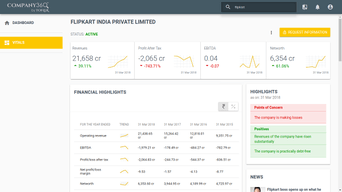Assets
What is an Asset?
Assets play a crucial role in ensuring the profitability of a business or its viability in the long-term. The term covers all kinds of resources that help in generating revenue as well as receivables. Assets are resources that help in lowering expenses, enhancing profitability, and generating robust cash flow. As they possess economic value, they can be quickly exchanged or sold.
Assets and any such resources are always reported on the left side of the Balance Sheet. The sum of total liabilities and equities owed assists in the computation of the value of the assets by an individual or a company.
Total Assets = Liabilities (accounts payable) + Owner's Equity
Key Insights:
- An asset is something that holds an economic value and can be converted into cash whenever required.
- Assets may include investments, machinery, vehicles, inventory, patents, royalties, real estate, and more.
- The balance sheet of a company lists all its assets and information on how they are financed.
- Assets are usually categorized based on their convertibility, usage, and their physical existence.
Different types of Assets:
For companies, assets help in sustaining growth and production as they hold value. Here are the different kinds along with examples of assets.
-
Short-term/current assets
These assets can be converted into cash or their equivalent resources easily. This is the reason why these are also referred to as liquid assets. For instance, short-term deposits, marketable securities, stocks, and cash equivalents are some of the most common current assets.
-
Long-term or fixed assets
Also referred to as hard assets, fixed assets cannot be converted into cash or its equivalent readily. Machinery, land, patents, building, equipment, trademarks, etc. are considered to be fixed assets.
-
Tangible assets
Assets that have a physical existence are categorized as tangible assets. Resources such as machinery, equipment, office supplies, building, land, marketable securities are good examples of tangible assets.
-
Intangible assets
Assets that do not have any physical existence are categorized as intangible assets. The best intangible assets examples would be corporate intellectual property, goodwill, copyrights, patents, trade secrets, permits, brands, etc.
-
Operating assets
Assets such as cash, copyright, equipment, machinery, building, etc. are termed as operating assets. Such assets are utilized for generating revenue and for maintaining daily operations.
-
Non-operating assets
Although these assets are not used in performing daily operations, these help in generating significant revenue. Short-term investments, income generated from fixed deposits, and vacant land are the best examples of non-operating assets.
How do Assets work?
Keeping a tab on the assets is crucial while running a business. It is essential to do an assessment of what assets you have and how much they are worth if you want to get them insured. Moreover, investors and lenders can take your assets into consideration while deciding whether to approve your loan request or not. Sometimes, they may even use your assets as collateral.
Assets are crucial in determining your net worth. The simplest way to calculate net worth is by subtracting the liabilities from assets. However, it is best to leave the assessment of the value of assets to a professional appraiser.
Generally, there are two common ways of estimating the value of assets: the market value method and the cost method. The cost method uses the original purchase price while valuing any assets. The market value method is a more accurate way of determining the value of the assets as it can increase or decrease in worth over time.
Role of Assets in estimating business value:
Assets hold value whether as a piece of equipment or as a property that your company has leased or owns for running the operations. These can also serve as a means of adding value to your business. Assets are important as they help in generating revenue, facilitate running your business, and increase the worth of your business. You can transfer or sell your assets, use them to increase the efficiency of your business, or cut down your taxes.
A good understanding of assets can help you achieve savings. You need to take good care of your assets to lower risk to your business. For instance, maintaining machinery in good condition will help you protect your business from safety and health risks, lost working time, and inefficiency.
It is extremely essential to carry out appropriate management of fixed assets during their lifecycle. This is because any errors in the process can result in an inaccurate valuation of your business. Consequently, there could be errors in tax reporting as well. Hence, if you want to make the most out of the assets you own, you need to value and record them accurately.
Having assets
- Indicates the profitability of your business and your financial position
- Increases positive attitude and goodwill towards your business
- Offers assurance to your investors and shareholders
If you are closing your business or selling it, classifying assets and valuing them precisely will play a vital role in determining the net worth of your business.
In summary:
You would have by now learned what is the meaning of assets. You can check the list of assets of any organization from their balance sheet. Classifying assets is crucial for any business. Having an understanding of which assets are current assets and which ones are fixed is important as it helps in understanding the net working capital of a company.
For instance, for a company operating in a high-risk industry, having an understanding of which assets are tangible and which ones are intangible help in assessing its risk and solvency. Determining which assets are operating and which ones are non-operating is essential for understanding the contribution of revenue from each asset.
Company360 plans

Know more about your vendors, clients and competitors.
Financials, scores, ratios, excels, reports and more.
@ INR 9000/quarter